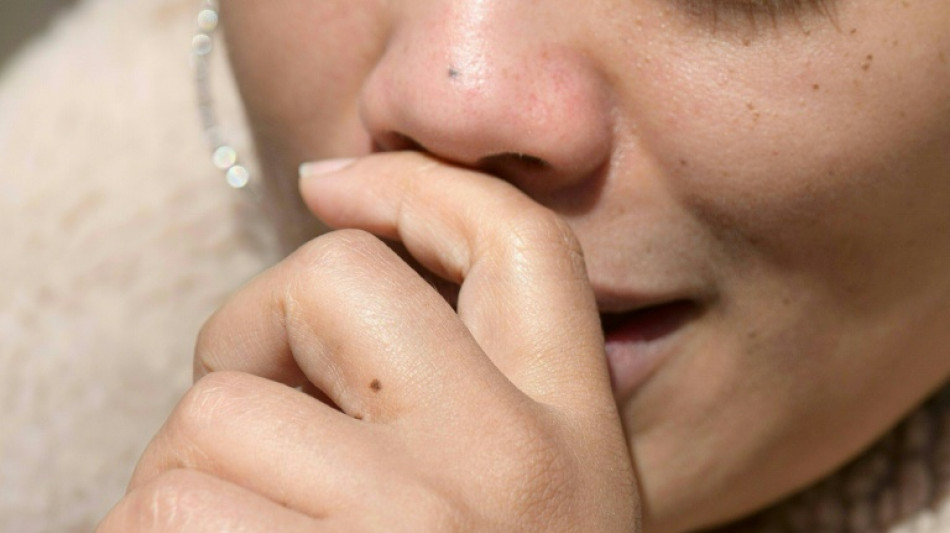
-
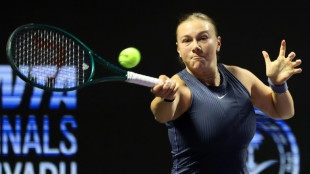 Anisimova beats Swiatek to reach WTA Finals last four
Anisimova beats Swiatek to reach WTA Finals last four
-
US Supreme Court appears skeptical of Trump tariff legality
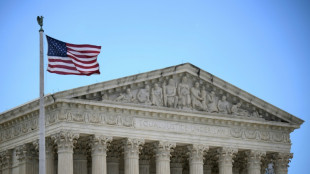
-
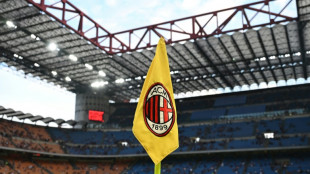 AC Milan post third straight annual profit on day of San Siro purchase
AC Milan post third straight annual profit on day of San Siro purchase
-
Angelina Jolie visits Ukrainian frontline city, media reports say
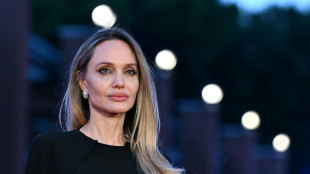
-
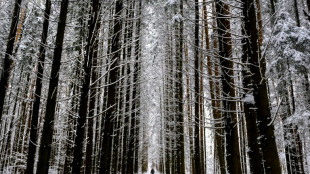 UN says forests should form key plank of COP30
UN says forests should form key plank of COP30
-
Star designer Rousteing quits fashion group Balmain

-
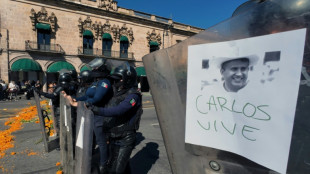 Mexico's Sheinbaum steps up cartel fight after murder of anti-narco mayor
Mexico's Sheinbaum steps up cartel fight after murder of anti-narco mayor
-
Attack on funeral in Sudan's Kordofan region kills 40: UN
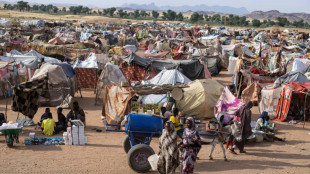
-
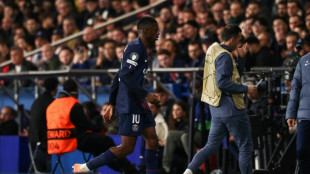 Key PSG trio set for spell on sidelines
Key PSG trio set for spell on sidelines
-
Democrats punch back in US elections - and see hope for 2026
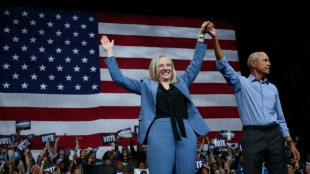
-
 BMW reports rising profitability, shares jump
BMW reports rising profitability, shares jump
-
Bolivia Supreme Court orders release of jailed ex-president Jeanine Anez
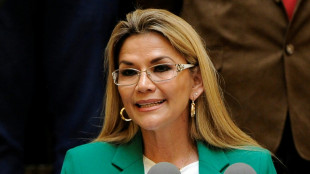
-
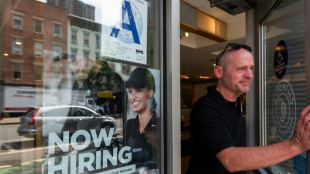 Wall Street stocks rise after positive jobs data
Wall Street stocks rise after positive jobs data
-
'Hostage diplomacy': longstanding Iran tactic presenting dilemma for West
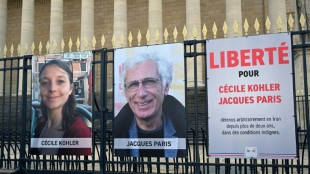
-
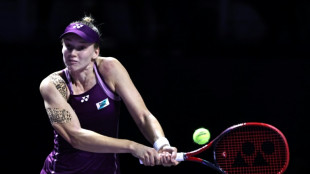 Rybakina stays perfect at WTA Finals with win over alternate Alexandrova
Rybakina stays perfect at WTA Finals with win over alternate Alexandrova
-
Le Garrec welcomes Dupont help in training for Springboks showdown

-
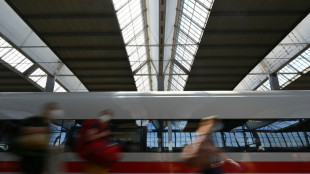 Brussels wants high-speed rail linking EU capitals by 2040
Brussels wants high-speed rail linking EU capitals by 2040
-
Swiss business chiefs met Trump on tariffs: Bern
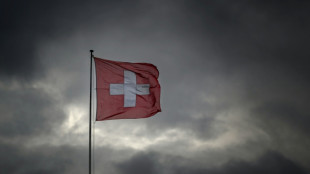
-
 Spain's exiled king recounts history, scandals in wistful memoir
Spain's exiled king recounts history, scandals in wistful memoir
-
Wall Street stocks steady after positive jobs data
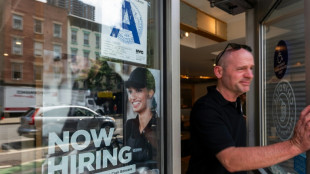
-
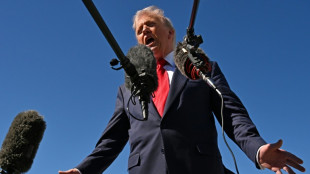 Trump blasts Democrats as government shutdown becomes longest ever
Trump blasts Democrats as government shutdown becomes longest ever
-
Indian pilgrims find 'warm welcome' in Pakistan despite tensions

-
 Inter and AC Milan complete purchase of San Siro
Inter and AC Milan complete purchase of San Siro
-
Swedish authorities inspect worksite conditions at steel startup Stegra

-
 Keys withdraws from WTA Finals with illness
Keys withdraws from WTA Finals with illness
-
Prince Harry says proud to be British despite new life in US

-
 EU strikes last-ditch deal on climate targets as COP30 looms
EU strikes last-ditch deal on climate targets as COP30 looms
-
Stocks retreat as tech bubble fears grow

-
 Shein opens first permanent store amid heavy police presence
Shein opens first permanent store amid heavy police presence
-
West Indies edge New Zealand despite Santner brilliance

-
 French pair released by Iran await return home
French pair released by Iran await return home
-
German factory orders up but outlook still muted

-
 Death toll tops 100 as Philippines digs out after typhoon
Death toll tops 100 as Philippines digs out after typhoon
-
Attack on key city in Sudan's Kordofan region kills 40: UN

-
 'No one could stop it': Sudanese describe mass rapes while fleeing El-Fasher
'No one could stop it': Sudanese describe mass rapes while fleeing El-Fasher
-
Champagne and cheers across New York as Mamdani soars to victory

-
 Medieval tower collapse adds to Italy's workplace toll
Medieval tower collapse adds to Italy's workplace toll
-
BMW boosts profitability despite China, tariff woes

-
 South Africa's Wiese wary of 'hurt' France before re-match
South Africa's Wiese wary of 'hurt' France before re-match
-
Beyond limits: Croatian freediver's breathtaking record

-
 Tottenham supporting Udogie after alleged gun threat in London
Tottenham supporting Udogie after alleged gun threat in London
-
Thunder roll Clippers to stay unbeaten as SGA keeps streak alive

-
 In appeal, Australian mushroom murderer alleges 'miscarriage of justice'
In appeal, Australian mushroom murderer alleges 'miscarriage of justice'
-
Toyota hikes profit forecasts 'despite US tariffs'

-
 Ex-France lock Willemse challenges Meafou to become 'the bully'
Ex-France lock Willemse challenges Meafou to become 'the bully'
-
Ukrainians to honour sporting dead by building country they 'died for': minister

-
 At least 7 dead after UPS cargo plane crashes near Louisville airport
At least 7 dead after UPS cargo plane crashes near Louisville airport
-
US Supreme Court hears challenge to Trump tariff powers

-
 US government shutdown becomes longest in history
US government shutdown becomes longest in history
-
India's Modi readies bellwether poll in poorest state


Warmer noses are better at fighting colds: study
Chilly weather and common respiratory infections often go hand in hand.
Reasons for this include people gather inside more in winter, and viruses survive better in low-humidity indoor air. But there has been less certainty about whether lower temperatures actually impair human immunity and, if so, how.
Now, a new study published Tuesday in The Journal of Allergy and Clinical Immunology details a previously unknown way that the immune system attacks viral intruders inside the nose -- and finds it works better when it's warm.
These discoveries could pave the way for an eventual treatment against the common cold and other viruses, Mansoor Amiji, a pharmaceutical sciences professor at Northeastern University, who co-led the research, told AFP.
The starting point was previous research by Amiji and colleagues in 2018, which found that nasal cells released "extracellular vesicles" (EVs) —- a spray of tiny sacs that swarmed and destroyed bacteria upon inhalation.
"The best analogy that we have is a hornet's nest," said Amiji. Like hornets defending a nest from attack, EVs swarm, bind to, and kill invaders.
For the new research, the team set out to answer two questions: are EVs also secreted in the nose in the presence of viral infections? And, if they are, is the strength of their response linked to temperature?
To answer the first question, they used a test substance which mimics a viral infection to stimulate nasal mucosa -- a thin tissue that lines the nose -- that was taken from volunteers who had surgery to remove polyps.
They found it did in fact produce EVs that target viruses.
In order to tackle the second question, they divided the nasal cell samples into two groups and cultured them in a lab, subjecting one set of samples to 37 degrees Celsius, and the other to 32C.
These temperatures were chosen based on a separate test that found the temperature inside the nose falls by about 5C when outside air drops from 23C to 4C.
Under regular body heat conditions, the EVs were successfully able to fight off viruses, by presenting them with "decoy" targets that they latch on to instead of the receptors they would otherwise target on cells.
But under the reduced temperatures, fewer EVs were produced, and those that were made packed less punch against the invaders tested: two rhinoviruses and a non-Covid coronavirus, which are typically found in winter cold season.
"There's never been a convincing reason why you have this very clear increase in viral infectivity in the cold months," said co-author Benjamin Bleier, a surgeon at Harvard Medical School and Massachusetts Eye and Ear, in a statement.
"This is the first quantitative and biologically plausible explanation that has been developed."
One of the most exciting aspects of the work is the potential to rev up the body's natural production of virus-targeting EVs in order to fight or even fend off the cold -- or even the flu and Covid, said Amiji.
"That's an area of great interest for us and we certainly continue to pursue that," he said.
K.Brown--BTB




